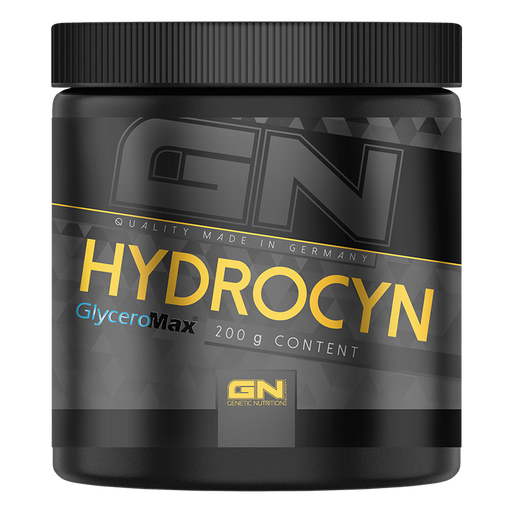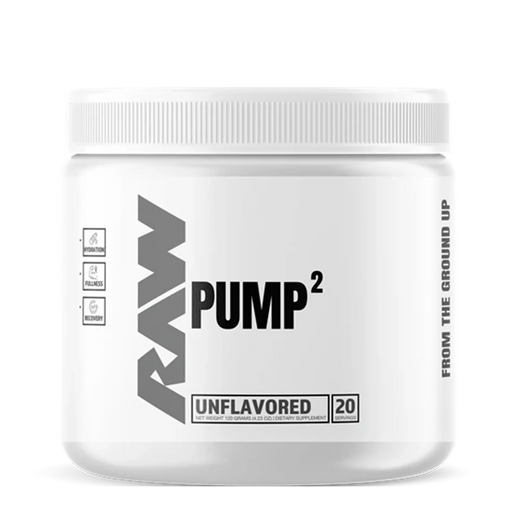Glycerine
-
 Save 11%
Save %
Original price €26,90Original price €26,90 - Original price €26,90Original price €26,90Current price €23,94€23,94 - €23,94Current price €23,94| /
Save 11%
Save %
Original price €26,90Original price €26,90 - Original price €26,90Original price €26,90Current price €23,94€23,94 - €23,94Current price €23,94| /Hydrocyn Glycerol · 200g
GN Laboratories23 reviewsHYDROCYN™ Glycerol is a supplement that is becoming increasingly popular, especially for its effects on blood circulation. Here too, GN relies on t...
View full detailsOriginal price €26,90Original price €26,90 - Original price €26,90Original price €26,90Current price €23,94€23,94 - €23,94Current price €23,94| /Save 11% Save % -
 Sold out
Original price €14,90Original price €14,90 - Original price €14,90Original price €14,90Current price €13,26€13,26 - €13,26Current price €13,26| /
Sold out
Original price €14,90Original price €14,90 - Original price €14,90Original price €14,90Current price €13,26€13,26 - €13,26Current price €13,26| /CBUM RAW Pump2 · 120g
Raw Nutrition3 reviewsHighest muscle fullness Hydrates muscle cells Increases endurance
Original price €14,90Original price €14,90 - Original price €14,90Original price €14,90Current price €13,26€13,26 - €13,26Current price €13,26| /Sold out -
 Save 0%
Save %
Original price €14,90 - Original price €14,90Original price €14,90€14,90€14,90 - €14,90Current price €14,90| /
Save 0%
Save %
Original price €14,90 - Original price €14,90Original price €14,90€14,90€14,90 - €14,90Current price €14,90| /Liquid Glycerol · 500ml
PEAKNo reviewsMaximale Pump-Wirkung dank hochkonzentrierter Glycerin-Formel Schnelle Absorption durch flüssige Konsistenz für sofortige Effekte Verbesserte A...
View full detailsOriginal price €14,90 - Original price €14,90Original price €14,90€14,90€14,90 - €14,90Current price €14,90| /Save 0% Save %
Glycerin is a naturally occurring chemical that is used by some people as a medicine. Glycerin is taken orally to aid weight loss, to improve exercise performance, to help the body replace fluids lost through diarrhea and vomiting, and to reduce intraocular pressure in people suffering from glaucoma. Physicians sometimes administer glycerin intravenously to relieve intracranial pressure in certain conditions including stroke, meningitis, encephalitis, Reye's syndrome, pseudotumor cerebri, CNS trauma and CNS tumors. Other uses for intravenous glycerin injections include reducing brain volume for neurosurgical procedures and treating fainting spells while standing due to poor blood flow to the brain. Some people apply glycerin to the skin as a moisturizer. Ophthalmologists sometimes use a solution containing glycerin to reduce fluid in the cornea before an eye examination. Rectally, glycerin is used as a laxative.
How does glycerine work?
Glycerin draws water into the digestive tract, softens the stool and relieves constipation.
How effective is glycerine?
Glycerine is likely to be effective as a laxative when administered rectally as a suppository. Glycerin** may not be effective when taken orally to aid weight loss. Glycerol is likely to be ineffective when used orally to improve athletic performance or intravenously to treat acute stroke. There is not enough scientific data to make a statement regarding the effectiveness of glycerin for supporting hydration in athletes and people suffering from digestive tract problems, as well as for reducing wrinkles in the skin. Further scientific research is needed to evaluate the effectiveness of glycerin in these applications.
Safety and side effects
Glycerin appears to be safe and harmless for most adults. When taken orally, glycerin may cause side effects including headache, dizziness, a bloated feeling, nausea, vomiting, thirst and diarrhea. Glycerin may not be safe and harmless when injected intravenously as red blood cells could be seriously damaged.
Precautions and warnings
Pregnancy and lactation: Not enough is known about the use of glycerin during pregnancy and lactation. For this reason, pregnant and breastfeeding women should avoid glycerine.
Interactions
At this time, there is no information on interactions of glycerin with medications or supplements.
Dosage
The following dosages have been investigated in scientific studies:
Rectally
As a laxative for adults with constipation: The dose of glycerine usually used is 2 to 3 grams in the form of suppositories or a 5 to 15 ml enema. For children under 6 years of age, the dosage is 1 to 1.7 grams in the form of suppositories or 2 to 5 ml in the form of an enema.
References
- Arnall DA, Goforth HW. Failure to reduce body water loss in cold-water immersion by glycerol ingestion. Undersea Hyperb Med 1993;20:309-20.
- Bayer AJ, Pathy MS, Newcombe R. Double-blind randomized trial of intravenous glycerol in acute stroke. Lancet 1987;:405-8.
- Bjorvell H, Hylander B, Rossner S. Effects of glycerol addition to diet in weight-reducing clubs. Int J Obes 1984;8:129-33.
- Covington TR, et al. Handbook of Nonprescription Drugs. 11th ed. Washington, DC: American Pharmaceutical Association, 1996.
- Dry skin management. Pharmacist's Letter/Prescriber's Letter 2008;24(3):240316.
- Fawer R, Justafre JC, Berger JP, Schelling JL. Intravenous glycerol in cerebral infarction: a controlled 4-month trial. Stroke 1978;9:484-6.
- Frei A, Cottier C, Wunderlich P, Ludin E. Glycerol and dextran combined in the therapy of acute stroke. A placebo-controlled, double-blind trial with a planned interim analysis. Stroke 1987;18:373-9.
- Friedli W, Imbach P, Ghisleni-Steinegger S, et al [Treatment with 10% glycerol in acute ischemic cerebral infarct. Double-blind study]. Schweiz Med Wochenschr 1979;109:737-42.
- Inder WJ, Swanney MP, Donald RA, et al. The effect of glycerol and desmopressin on exercise performance and hydration in triathletes. Med Sci Sports Exerc 1998;30:1263-9.
- Montner P, Stark DM, Riedesel ML, et al. Pre-exercise glycerol hydration improves cycling endurance time. Int J Sports Med 1996;17:27-33.
- Murray R, Eddy DE, Paul GL, et al. Physiological responses to glycerol ingestion during exercise. J Appl Physiol 1991;71:144-9.
- Robergs RA, Griffin SE. Glycerol. Biochemistry, pharmacokinetics and clinical and practical applications. Sports Med 1998;26:145-67.
- Stanko RT, Reynolds HR, Hoyson R, et al. Pyruvate supplementation of a low-cholesterol, low-fat diet: effects on plasma lipid concentrations and body composition in hyperlipidemic patients. Am J Clin Nutr 1994;59:423-7.
- Wagner DR. Hyperhydrating with glycerol: implications for athletic performance. J Am Diet Assoc 1999;99:207-12.
- Yu YL, Kumana CR, Lauder IJ, et al. Treatment of acute cerebral hemorrhage with intravenous glycerol. A double-blind, placebo-controlled, randomized trial. Stroke 1992;23:967-71.
- Yu YL, Kumana CR, Lauder IJ, et al. Treatment of acute cortical infarct with intravenous glycerol. A double-blind, placebo-controlled randomized trial. Stroke 1993;24:1119-24.



